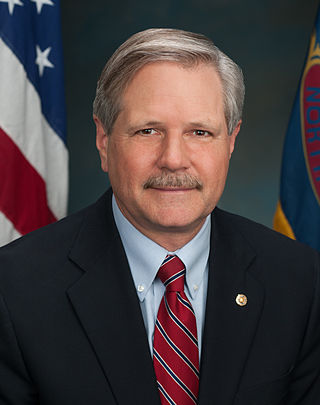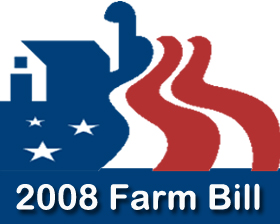This article needs to be updated.(March 2021) |
The U.S. Senate Agriculture Subcommittee on Food and Nutrition, Specialty Crops, Organics, and Research is one of five subcommittees of the U.S. Senate Committee on Agriculture, Nutrition and Forestry.
This article needs to be updated.(March 2021) |
The U.S. Senate Agriculture Subcommittee on Food and Nutrition, Specialty Crops, Organics, and Research is one of five subcommittees of the U.S. Senate Committee on Agriculture, Nutrition and Forestry.
The subcommittee was renamed for the 115th United States Congress (2017).
It was previously:
This subcommittee has jurisdiction over "domestic and international nutrition and food assistance and hunger prevention; school and child nutrition programs; local and healthy food initiatives; futures, options and derivatives; pesticides; and general legislation". [1] The origins of the subcommittee lay in the Senate Select Committee on Nutrition and Human Needs that was active from 1968 to 1977 before being subsumed into the Agriculture Committee. [2]
| Majority | Minority |
|---|---|
|
|
| Ex officio | |

Mark Lunsford Pryor is an American attorney, politician and lobbyist who served as a United States Senator from Arkansas from 2003 to 2015. He is a member of the Democratic Party. Prior to becoming senator, he was Attorney General of Arkansas from 1999 to 2003.

John Henry Hoeven III is an American banker and politician serving as the senior U.S. senator from North Dakota, a seat he has held since 2011. A member of the Republican Party, Hoeven served as the 31st governor of North Dakota from 2000 to 2010.

The Committee on Agriculture, Nutrition, and Forestry is a committee of the United States Senate empowered with legislative oversight of all matters relating to the nation's agriculture industry, farming programs, forestry and logging, and legislation relating to nutrition, home economics, and rural development.

The U.S. House Committee on Agriculture, or Agriculture Committee is a standing committee of the United States House of Representatives. The House Committee on Agriculture has general jurisdiction over federal agriculture policy and oversight of some federal agencies, and it can recommend funding appropriations for various governmental agencies, programs, and activities, as defined by House rules.
The U.S. Senate Appropriations Subcommittee on Agriculture, Rural Development, Food and Drug Administration, and Related Agencies is one of twelve subcommittees of the U.S. Senate Committee on Appropriations. It was formerly known as the Subcommittee on Agriculture, Rural Development, and Related Services, but was renamed in 2007 to more accurately reflect the programs under its jurisdiction, and to more closely align the subcommittee with its counterpart on the House Appropriations Committee. The United States Senate Committee on Appropriations has joint jurisdiction with the United States House Committee on Appropriations over all appropriations bills in the United States Congress. Each committee has 12 matching subcommittees, each of which is tasked with working on one of the twelve annual regular appropriations bills. This subcommittee has jurisdiction over the budget for the United States Department of Agriculture, Rural Development, and the Food and Drug Administration.
The U.S. Senate Agriculture Subcommittee on Commodities, Risk Management, and Trade is one of five subcommittees of the U.S. Senate Committee on Agriculture, Nutrition and Forestry.
The U.S. Senate Agriculture Subcommittee on Livestock, Dairy, Poultry, Local Food Systems, and Food Safety and Security is one of five subcommittees of the Senate Committee on Agriculture, Nutrition, and Forestry.
The U.S. Senate Agriculture Subcommittee on Conservation, Climate, Forestry, and Natural Resources is one of five subcommittees of the U.S. Senate Committee on Agriculture, Nutrition and Forestry. Prior to the 117th Congress, it was named the Subcommittee on Conservation, Forestry and Natural Resources.

Amy Jean Klobuchar is an American politician and lawyer serving as the senior United States senator from Minnesota, a seat she has held since 2007. A member of the Minnesota Democratic–Farmer–Labor Party (DFL), Minnesota's affiliate of the Democratic Party, she previously served as the attorney of Hennepin County.
The Foreign Agricultural Service (FAS) is the foreign affairs agency with primary responsibility for the United States Department of Agriculture's (USDA) overseas programs – market development, international trade agreements and negotiations, and the collection of statistics and market information. It also administers the USDA's export credit guarantee and food aid programs and helps increase income and food availability in developing nations by mobilizing expertise for agriculturally led economic growth. The FAS mission statement reads, "Linking U.S. agriculture to the world to enhance export opportunities and global food security," and its motto is "Linking U.S. Agriculture to the World."
The House Subcommittee on General Farm Commodities, Risk Management and Credit is a subcommittee within the House Agriculture Committee.
The House Subcommittee on Rural Development, Research, Biotechnology, and Foreign Agriculture is a subcommittee within the House Agriculture Committee. Its jurisdiction includes rural development, farm security and family farming matters, foreign agricultural assistance, and trade promotion programs.
The U.S. Senate Agriculture Subcommittee on Rural Development and Energy is one of five subcommittees of the U.S. Senate Committee on Agriculture, Nutrition and Forestry.

In the United States, the farm bill is the primary agricultural and food policy instrument of the federal government. Every five years, Congress deals with the renewal and revision of the comprehensive omnibus bill.

The Food, Conservation, and Energy Act of 2008 was a $288 billion, five-year agricultural policy bill that was passed into law by the United States Congress on June 18, 2008. The bill was a continuation of the 2002 Farm Bill. It continues the United States' long history of agricultural subsidies as well as pursuing areas such as energy, conservation, nutrition, and rural development. Some specific initiatives in the bill include increases in Food Stamp benefits, increased support for the production of cellulosic ethanol, and money for the research of pests, diseases and other agricultural problems.

Glenn William "GT" Thompson Jr. is an American politician serving as the U.S. representative for Pennsylvania's 15th congressional district since 2019. A member of the Republican Party, he was first elected to Congress in 2008 for the state's 5th congressional district; Thompson was redistricted to the 15th congressional district in the 2018 election by an order of the Supreme Court of Pennsylvania. Since 2023, he has chaired the House Agriculture Committee.
The United States Senate Select Committee on Nutrition and Human Needs was a select committee of the United States Senate between 1968 and 1977. It was sometimes referred to as the McGovern committee, after its only chairman, Senator George McGovern of South Dakota.

The Healthy, Hunger-Free Kids Act of 2010 is a federal statute signed into law by President Barack Obama on December 13, 2010. The law is part of the reauthorization of funding for child nutrition. It funded child nutrition programs and free lunch programs in schools for 5 years. In addition, the law set new nutrition standards for schools, and allocated $4.5 billion for their implementation. The new nutrition standards were a centerpiece of First Lady Michelle Obama's Let's Move! initiative to combat childhood obesity. In FY 2011, federal spending totaled $10.1 billion for the National School Lunch Program. The Healthy, Hunger-Free Kids Act allows USDA, for the first time in 30 years, opportunity to make real reforms to the school lunch and breakfast programs by improving the critical nutrition and hunger safety net for millions of children. Healthy, Hunger-Free Kids Act and Michelle Obama were a step in transforming the food pyramid recommendation, which has been around since the early 1990s, into what is now known as "MyPlate".

William Maurice Cowan is an American lawyer who served as a United States Senator from Massachusetts from February 1, 2013, to July 16, 2013. A member of the Democratic Party, he previously served as legal counsel and chief of staff to Governor Deval Patrick. Patrick appointed him on an interim basis to fill the vacancy left by fellow Democrat John Kerry, who resigned to become U.S. Secretary of State.

The Agricultural Act of 2014, formerly the Federal Agriculture Reform and Risk Management Act of 2013, is an act of Congress that authorizes nutrition and agriculture programs in the United States for the years of 2014-2018. The bill authorizes $956 billion in spending over the next ten years.